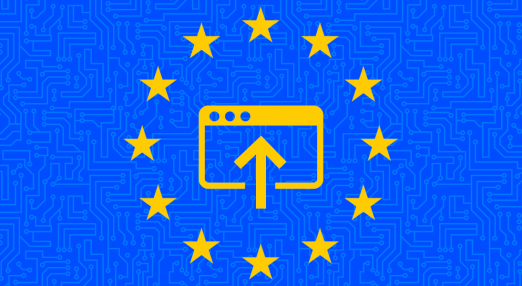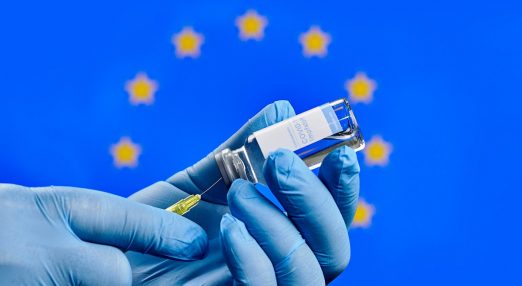Personal data and competition: Mapping perspectives, identifying challenges and enhancing engagement for competition regulators and civil society
This report seeks to map the attitudes and perspectives of competition regulators and civil society across the world with regard to personal data and competition.
Filter resources
-

Personal data and competition: Mapping perspectives, identifying challenges and enhancing engagement for competition regulators and civil society
This report seeks to map the attitudes and perspectives of competition regulators and civil society across the world with regard to personal data and competition.
Read more
-

Irish DPC burns taxpayer money over delay cases
Irish DPC to pay tens of thousands in legal costs over 47 months delay in cases against WhatsApp and Instagram
Read more
-

Not everything is allowed in politics: Upcoming political advertising legislation must introduce limits
In November 2021, the European Commission launched a proposal for a regulation on the transparency and targeting of political advertising. The document will place harmonised rules for more transparency of political advertising to facilitate the sector’s internal market. Now, it is the European Parliament’s turn, specifically the IMCO (Internal Market and Consumer Protection) Committee to lead the legislative process.
Read more
-

Orwell’s Wallet: European electronic identity system leads us straight into surveillance capitalism
In June 2021 the European Commission launched a reform of the 2014 eIDAS Regulation to overhaul Europe’s framework for electronic identity (eID) systems. This ambitious reform tries to create a counterbalance to the widespread login systems of Google, Facebook and Apple, as well as to provide widely-adopted eID systems for eGovernment and eCommerce applications to the population.
Read more
-

DMA: European Parliament takes first steps towards limiting gatekeeper power and providing real choices for people
Today, the European Parliament has approved its position on the Digital Markets Act (DMA). While unfortunately, it scales down the DMA scope by limiting who will be considered a gatekeeper, the Parliament position adds a number of notable improvements from a digital rights perspective that help challenge digital gatekeepers’ overwhelming power.
Read more
-

Digital Services Act: EU Parliament’s key committee rejects a filternet but concerns remain
The European Union's Digital Services Act (DSA) is a big deal. It's the most significant reform of Europe’s internet platform legislation in twenty years and the EU Commission has proposed multiple new rules to address the challenges brought by the increased use of services online. EU members of Parliament (MEPs) showed that they listened to civil society voices: Even though the key committee on internal market affairs (IMCO) did not follow the footsteps of the ambitious DSA reports from last year, MEPs took a stance for the protection of fundamental rights.
Read more
-

Two steps forward, one step back: DMA must do more to free people from digital walled gardens
The European Parliament Committee on the Internal Market and Consumer Protection (IMCO) report on the Digital Markets Act (DMA) makes improvements to the DMA but also includes serious loopholes that need to be fixed in trilogue
Read more
-

Noyb files another complaint against Amazon Europe – black box algorithm discriminates customers
The e-commerce giant offers customers the possibility to pay for products later via "Monthly Invoicing". A customer was automatically rejected from using this payment method without Amazon giving any reasons why. When Amazon’s customer service could not provide any further information, the customer submitted an access request under Article 15 GDPR in order to find out why he was rejected – but the company still refused to provide any information.
Read more
-

You Shall Not Pass! Wikimedia Foundation Denied Observer Status At WIPO
China blocked the Wikimedia Foundation’s bid for observer status at WIPO. This is the second time this has happened after the Foundation’s initial application in 2020. Wikimedia’s exclusion sets a worrying precedent and should alert European lawmakers who are concerned about the democratic governance of intergovernmental organizations. EDRi's member Wikimedia Germany sheds some light on the case.
Read more
-

Digital Dignity Document Pool
Digital technologies can have a profound effect on our societies, but sufficient attention is rarely given to how certain applications differentiate between, target and experiment on communities at the margins. This document pool gathers resources for those that are interested in learning about and contesting the harms to dignity and equality that arise from uses of technology and data.
Read more
-

EU Parliament adopts the Covid Pass: risks for data protection and new forms of discrimination
At first glance, teh Digital Green Certificate may sound interesting, but upon further reflection, it quickly becomes clear that the proposed system has the potential to divide society and expose certificate holders to far-reaching surveillance by the authorities that issue the documents. Even worse, it exacerbates inequalities and increases social exclusion, shares EDRi's member epicenter.works.
Read more
-

EU: New “ad-hoc working group” on vaccine passports starts work – in secret
EDRi's member Statewatch shares that discussions amongst EU member states on how to approach plans for digital vaccination certificates are taking place in a new "ad-hoc working group", a format that is not likely to foster transparency - particularly given that the group has said it will not be keeping "minutes as such".
Read more
